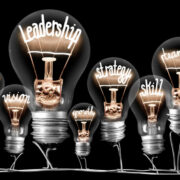John Cradden provides an overview of the essential things you’ll need to think about if you are hoping to embark on a business venture.
Starting a business? There’s a lot to consider and it can be hard to know where to begin.
This guide provides an overview of the essential things you’ll need to think about. There’s no right or wrong about which of these you should start with or prioritise – so much depends on you and your business.
“Of all the items on this checklist, a business plan is probably the one that will make the biggest difference between success and failure”
So think of this as a checklist – but in no particular order.
Finding a good business idea
If you’re reading this, there’s a good chance you’ll have a business idea or two percolating in your head already. The Local Enterprise Office’s free Start Your Own Business programme is a good introduction to getting you thinking about running your business, including testing your ideas. Bank of Ireland has created the Business Start-up Account which gives you everything you need to start, run and grow your business.
Market research
Is there a demand or need for this business that hasn’t been tapped yet? Find your target market and get to know your potential customers. Market research will also help you identify your competitors and how to compete effectively.
Business requirements
Where will your business be based? What sort of equipment do you need, and will you need to employ staff? Think about what insurance you might need.
Develop a plan of the funding you may need
Once you have an idea of what your start-up costs associated with the business will be, the next step will be identifying ways of financing your venture. Whether its grants, loans or investment, do your homework or ask around and you’ll find a myriad of funding sources out there to suit businesses at any stage of its development.
Branding
Choose a business name, get it trademarked, develop a logo, tagline and colour scheme. Get the name trademarked, but not before making sure there isn’t another business somewhere that might be operating under the same name.
Business bank account
Setting up a business bank account isn’t quite as straightforward as setting up a personal account. If you chose to be a limited company or a partnership, you may need to provide certain documents, such as signed mandates from any company directors and signed certificates of incorporation.
Sales
What price will you put on your product or services? What are your distribution channels? What will you need to sell to break even?
Marketing
How will you market your business and through what channels? Getting set up on all relevant social media channels is pretty essential these days, for instance.
Legal structure
Your company’s legal structure is an important consideration, as this will determine what type of taxes you pay, your legal obligations and your personal liability for your business debts. The main types include sole trader, partnership and limited company.
Legal obligations and tax
Register your company name with the Companies Registration Office, and check with Revenue about your tax obligations. Depending on what legal structure you have chosen, you may need to look at things like VAT, PRSI, and capital gains tax. You’ll also need to be aware of your statutory obligations regarding health and safety, patents, planning permissions, trading licenses, and employing staff.
Accounting
Start-ups will need accounting advice. The type of advice will depend on what type of business you have, so it’s important to find the right type for your situation. The services you may need could include company formation, VAT returns, CRO returns and tax returns.
Business plan
Of all the items on this checklist, a business plan is probably the one that will make the biggest difference between success and failure. It should cover objectives, strategies, target markets and realistic financial forecasts over the short-term and long-term.
It’s a vital document to have if you’re applying for a loan, a grant or approaching an investor. It’s also likely to be a living, breathing document that evolves as you learn more about running the business and adapt to change.






